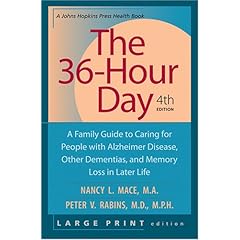|
What is 2-1-1?
* 2-1-1 is an easy to remember telephone number that connects callers to information about critical health and human services available in their community.
* 2-1-1 reaches approximately 196 million people (over 65% of the total U.S. population) in 41 states and the District of Columbia. Yet, millions of Americans still need to be connected.
* America needs 2-1-1 to be accessible nationwide. As the number of organizations providing specialized services is on the rise, people find it frustrating and confusing to access community services. 2-1-1 provides a one-stop service for vital information.
* While services that are offered through 2-1-1 vary from community to community, 2-1-1 provides callers with information about and referrals to human services for every day needs and in times of crisis. For example, 2-1-1 can offer access to the following types of services:
o Basic Human Needs Resource: food banks, clothing, shelters, rent assistance, utility assistance.
o Physical and Mental Health Resources: medical information lines, crisis intervention services, support groups, counseling, drug and alcohol intervention, rehabilitation, health insurance programs, Medicaid and Medicare, maternal health, children’s health insurance programs.
o Employment Support: unemployment benefits, financial assistance, job training, transportation assistance, education programs.
o Support for Older Americans and Persons with Disabilities: home health care, adult day care, congregate meals, Meals on Wheels, respite care, transportation, and homemaker services.
o Support for Children, Youth and Families: Quality childcare, Success by 6, after school programs, Head Start, family resource centers, summer camps and recreation programs, mentoring, tutoring, protective services.
o Volunteer opportunities and donations.
How is United Way involved in 2-1-1?
* 2-1-1 was first launched by United Way of Metropolitan Atlanta in 1997 and now reaches into 30 states and the District of Columbia.
* United Way supports 2-1-1 as the first number to call to connect with health and human services and volunteer opportunities.
* UWA has declared February 11th as National 2-1-1 Day.
* United Ways have a long-standing tradition of commitment to funding information and referral (I&R) services in their respective communities.
* 2-1-1 and its goal to contribute vital information that benefits individuals and communities mirrors the mission of the 1,400 United Ways nationwide to better people’s lives.
How is 2-1-1 funded?
* 2-1-1 centers have various funding sources -- local United Ways, community foundations, Federal and local government funds.
* Senators Elizabeth Dole (R-NC) and Hillary Clinton (D-NY) have introduced bi-partisan legislation named the Calling 2-1-1 Act that would provide Federal funding for 2-1-1 and encourage support of it nationwide.
o There is a toll-free number – 1.888.PASS211 (1.888.727.7211) – where supporters of 2-1-1 can call to encourage their own Members of Congress to cosponsor S. 211 or the similar House legislation.
Cost Benefit Analysis
United Way of America commissioned a study to assess the expected costs and anticipated benefits of a nationwide 2-1-1 system. Completed in December, the University of Texas Ray Marshall Center for the Study of Human Resources concluded the following:
* When an individual seeks information or referral services for which they have little or no prior knowledge or experience, dialing 2-1-1 is much simpler than other options.
* General information systems, such as 4-1-1, provide information that is too general in nature to be very useful and may charge a fee.
* As a one-stop shop for social services, 2-1-1 would ultimately save Americans millions of dollars in taxpayer money.
* A national service of this type is estimated to provide $1.1 billion in net value to society over the next 10 years.


No comments:
Post a Comment